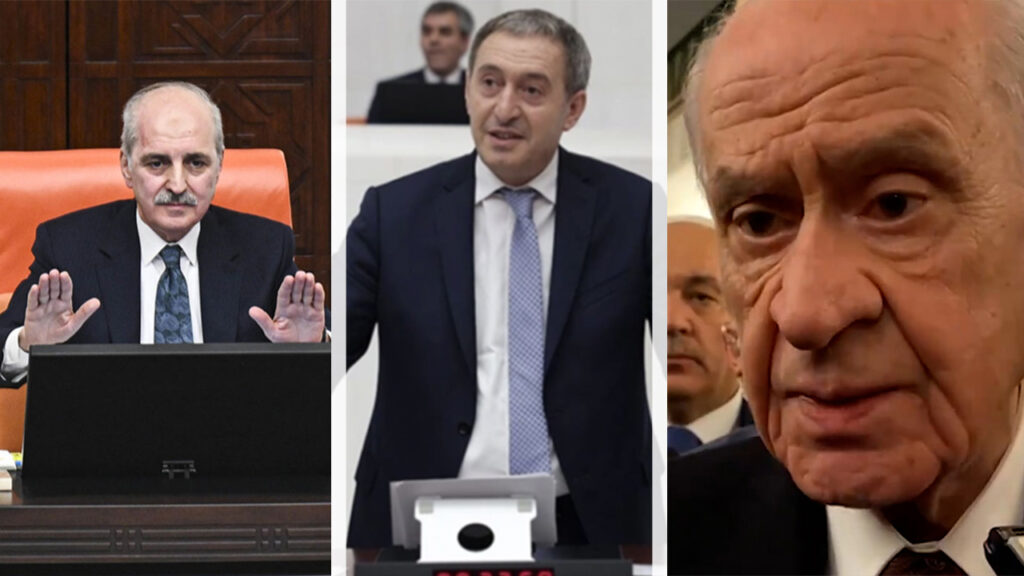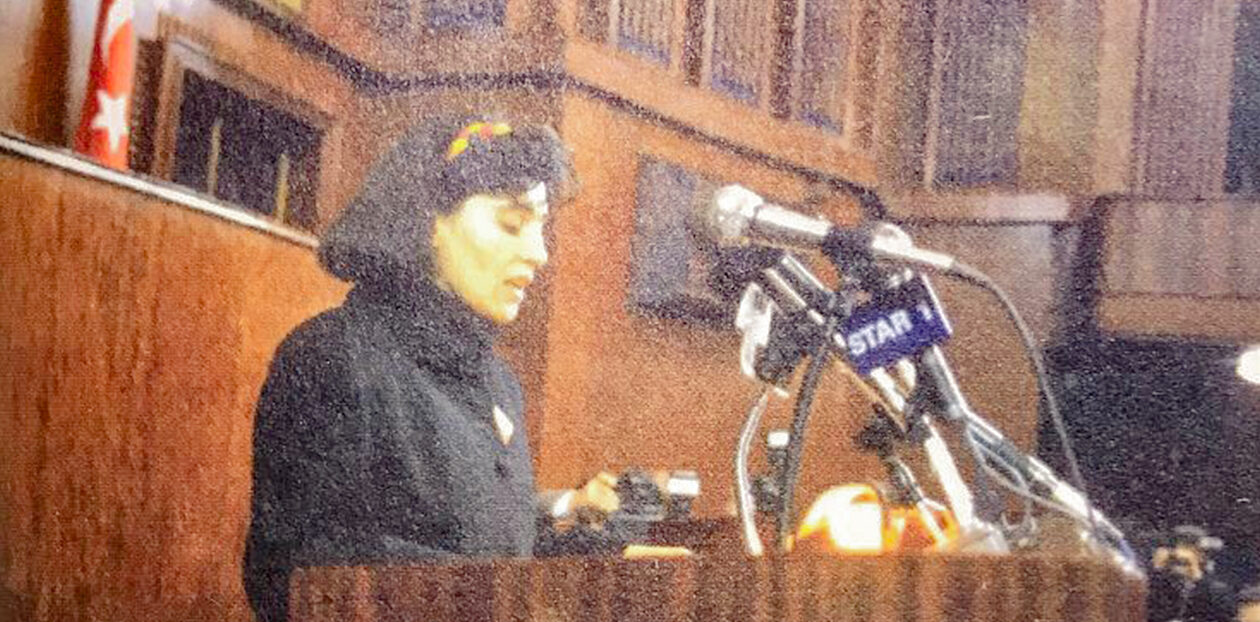The Kurdish language is a red line for the Peoples’ Equality and Democracy (DEM) Party, said co-chair Tuncer Bakırhan in a speech he made in Kurdish during a party multilingual group meeting in the Turkish parliament on Tuesday.
On the occasion of International Mother Language Day, 21 February, Bakırhan highlighted the critical status of the Kurdish language and the party’s stance on its recognition as an official language.
Addressing the government’s assimilation policies, Bakırhan criticised current political efforts to create a Kurdish identity devoid of the Kurdish language. He concluded his speech by reiterating the party’s commitment to multilingual municipal governance and mother tongue education.
History of the Kurdish language struggle in the Turkish parliament

Bakırhan’s Kurdish-language speech in the Turkish Parliament is significant for several reasons, reflecting both symbolic and practical aspects of the struggle for linguistic and cultural rights within Turkey, especially for the Kurdish community.
Historically, the use of Kurdish in both the public domain and the official has been restricted or banned outright. Speaking Kurdish in a high-profile, formal setting like the parliament directly challenges these restrictions and the legacy of language suppression in Turkey.
Kurdish language speeches in the Turkish parliament are not recorded in the parliamentary records, and often face adverse reaction from right-wing parties, who make up the majority of the parliament.
Tensions flared in the parliament in December when Bakırhan started to make a speech in Kurdish, but was stopped by the Speaker of the Assembly Numan Kurtulmuş. Kurtulmuş interrupted Bakırhan, insisting that Turkish being the official language in the assembly, Turkish must be spoken. Devlet Bahçeli, leader of the far-right Nationalist Movement Party (MHP) and an ally of the ruling party, reacted with fury to Bakırhan’s speaking in Kurdish.
But the history of uproar against the Kurdish language in the Turkish parliament goes back much further. The incident that went down in the history of the country as the “oath crisis” broke out when in 1991, Leyla Zana, the first Kurdish female parliamentarian in the Turkish assembly, spoke in Kurdish after she took her oath and said “I’m taking this oath for the fraternity of the Turkish and Kurdish people.”
At the time, the official ban of use of the Kurdish language, and even of the words “Kurds”, “Kurdistan” and “Kurdish” in public and private life, a consequence of the military coup, had just been lifted. Nevertheless, Zana was jailed in 1994 after adding that sentence in Kurdish while taking her parliamentary oath, and spent ten years behind bars.
Bakırhan made this latest speech shortly after challenging Turkish President Recep Tayyip Erdoğan on language rights. In January, Erdoğan was ridiculed on Kurdish social media for defending the mother tongue in a videotaped message to the International Congress of the Union of Democrats. In response to Erdoğan’s remarks stressing the importance of preserving the mother tongue as a defence against assimilation, the DEM Party co-chair questioned whether this sentiment would extend to the Kurdish community.
Critics argue that assimilation of the Kurds is Turkish government policy, and point to the contradictions between Erdoğan’s stance in Europe and his policies at home.
Kurdish in Turkey

The Kurdish community in Turkey continues to face significant challenges to the preservation and education of its mother tongue against a backdrop of historical and ongoing state restrictions. Despite brief periods of relative leniency, the Kurdish language, an integral part of Kurdish identity and culture, has experienced waves of repression, particularly in education and public life.
Recent years have seen a resurgence of such repressive measures, particularly since the collapse of peace talks between the Kurdistan Workers’ Party (PKK) and the Turkish government in 2015. The aftermath of this process has been marked by a widespread crackdown on opposition voices, including Kurdish language teachers, institutions and cultural expressions.
International Mother Language Day, established by UNESCO, aims to promote linguistic and cultural diversity and multilingualism worldwide. It is a day on which the Kurdish cultural organisations step up their campaign for the recognition of Kurdish as an educational and official language and for the establishment of Kurdish language organisations.
Kurdish children in Turkey often face significant obstacles from their earliest years in school, as they struggle with a system that provides education only in Turkish.
These challenges are not confined to the educational sphere, but extend into the wider socio-political landscape, affecting the ability of the Kurdish community to maintain and celebrate its linguistic heritage.
Following the 1980 military coup, the Kurdish language was banned in public and private life, with severe consequences including imprisonment for those who spoke or used Kurdish in any context.
Although the ban was officially lifted in 1991, the use of Kurdish as a language of instruction in schools remains illegal, and the language itself is only offered as an optional course in some places for a maximum of two hours per week. In 2021, out of 20,000 new teachers, the Ministry of Education hired only three Kurdish teachers, compared to 938 for English, 503 for Arabic and 25 for Russian.
Kurdish remains excluded from public services and initiatives, illustrating systemic discrimination against minority languages in Turkey, including in essential services such as health care and domestic violence support.
Furthermore, prisoners are denied Kurdish newspapers, books and magazines, as well as letters sent to them in Kurdish by relatives and friends. There are cases where prisoners have been subjected to communication bans as punishment when their visitors have spoken to them in Kurdish.









